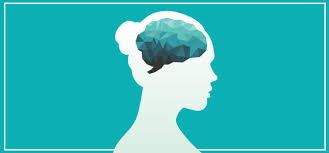Alzheimer’s disease and other brain conditions and diseases continue to affect ever-greater numbers of people. And while scientists are making advances in treatments, the cure for these complex, devastating diseases is still uncertain.
But there are things you can do to protect your brain health. June is Alzheimer’s and Brain Awareness Month, so it’s a good time to check in on your own self-care and also to see how your patients are taking care of their brain health. African Americans and Latinos bear greater risk of developing Alzheimer’s than older whites, so it’s especially important for some minority populations to understand their increased risk.
According to the Alzheimer’s Association, Alzheimer’s is not a normal aging process that happens to everyone as they get older. People may have typical memory slips, but Alzheimer’s involves much more than just forgetting where you put your keys.
With early detection, Alzheimer’s treatment can begin earlier and hopefully slow the progression, but as of right now, there is no cure for Alzheimer’s.
Learn the Signs
There are warning signs for Alzheimer’s that will let you know you, a loved one, or a patient is struggling with more than a little memory loss. While it’s normal aging to forget someone’s name, it’s not normal aging to forget who the person is. Other things to consider are disruptive mood changes (more than irritability about the dog walker being late), poor self care, and severe confusion about where they are or even what year it is.
Know How to Protect Your Brain
Experts say what’s good for your heart is good for your brain. Take care of yourself by getting rest, eating nutritious foods, socializing with people you enjoy, staying hydrated, not smoking, drinking alcohol minimally, and keeping at a healthy weight and blood pressure. But there’s more you can also do. Keep your brain active. As a nurse, you’re days are hardly ever the same and that’s good for your brain. Check in with your patients to see if they are keeping their brains stimulated with anything from hobbies to social clubs to trying new puzzles, reading or listening to new books, or even listening to unfamiliar music.
Be Safe
Brain injury is serious and some of it is preventable. Wear a helmet while biking, skiing, skateboarding, rollerblading, for any extreme sports, or riding a motorcycle or ATV (and make sure family members and friends do the same). Always wear a seat belt in the car. Check your home for tripping dangers like loose carpets, items on the stairs, or things on the floors. Take care in winter weather for icy spots. Anything you can do to prevent brain injury is good for both your long-term and short-term brain health.
Alzheimer’s and other brain diseases are a real health threat to all aging Americans, so you have a right to be concerned. But there are promising therapies on the horizon and there are things you can do now to help protect yourself as much as is possible. Spread the word about brain health and chat about it with your patients to pass along a few tips.
- WOC Nurses Week Highlights Specialty - April 16, 2024
- Honoring Radiology Nurses Day on April 12 - April 12, 2024
- Travel Offers New Career Possibilities - April 8, 2024



